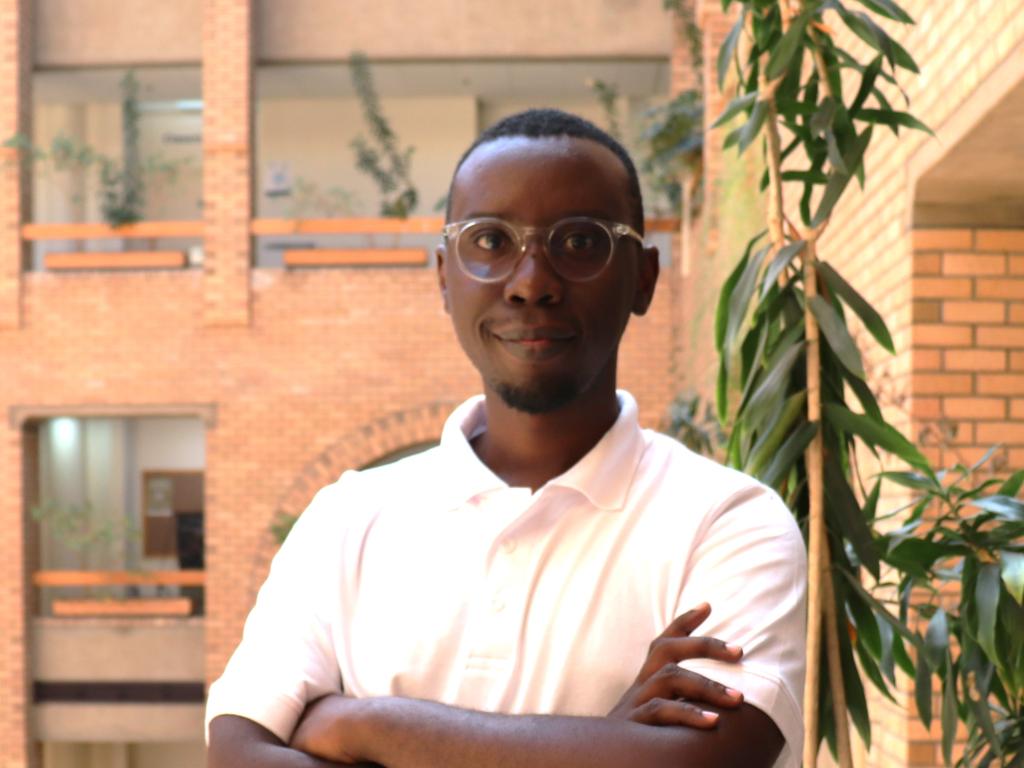Trapped in tarpaulin - refugee shelter in Uganda

The Faculty of Law is always keen to welcome new students from across the globe to the Wilfred & Jules Kramer Law School. Most recently - and just days before the arrival of our full cohort of new LLB and postgraduate students for 2025 - we were delighted to welcome Herman Tuhairwe who is pursuing his doctoral research under the supervision of Professor Fatima Khan, Director of UCT Law’s Refugee Rights Unit.
Herman’s research topic is Trapped in tarpaulin: Realisation of the right to adequate housing for refugees in Uganda's settlements. Herman’s argument is that those refugees in Uganda's settlements who are in a protracted situation (those who have spent more than five years as refugees) deserve better housing or shelter than they currently have access to. Herman’s thesis proposes that public interest litigation be undertaken to bring these refugee voices to government and development partners to secure improved housing. “Professor Khan,” says Herman, “has been so instrumental in shaping and refining my ideas in this regard”.
Uganda has long been lauded for its "open door" policy and currently hosts the largest number of refugees on the continent. Herman’s interest in this area of law was piqued by the realisation that refugees have been part and parcel of Uganda's social fabric for a sustained period. Refugees in Uganda have the right to work and move around the country, and many move out of the settlements within a few months of arrival to seek a livelihood elsewhere and thus many refugees have been absorbed into Ugandan society, especially in the urban and semi-urban areas.
“Growing up in the 90s in a small town 300km west of Kampala (the Ugandan capital)”, explains Herman, “there were always refugees around us, primarily from Rwanda and DRC. Years later, when I joined the civil service, I had the opportunity to visit refugee settlements, north of the capital. These settlements host refugees mostly from DRC and South Sudan, and I noted that despite the best efforts of the government and development partners, many refugees continued to reside in deplorable conditions. There really is the need for a solution.”
"I noted that despite the best efforts of the government and development partners, many refugees continued to reside in deplorable conditions. There really is the need for a solution"
These refugees are usually not able to return to their home countries and so those who for one reason or another cannot move out of the settlements are "trapped in tarpaulin". Refugees are not citizens, and aren’t part of political processes which might provide an opportunity to be heard. Hence, explains Herman, public interest litigation could provide an important stepping stone in changing these circumstances.
With his Bachelor of Laws, a postgraduate diploma in Legal Practice and a Master of Laws degree, all from institutions in Uganda, Herman hopes to use his doctoral research to contribute to discussions and policy development around refugee rights in Uganda and on the continent as a whole. Says Herman, “One of the things I have learnt during this journey has been that we need to have a change of mindset and perceive refugees as persons with rights, not as burdens for any country. We (as a continent) need to discard the colonial mentality of "othering". I hope to amplify my voice in this regard, and to give back to society by teaching Refugee law.”
When asked what he enjoyed most about his supervision visit to UCT Law, Herman commented that it’s a difficult question to answer. Herman loved the campus and the environment around UCT – and was given a tour of campus by supervisor Prof Khan. He also commented on the hospitality and friendliness, feeling right at home at the Refugee Rights Unit from the first moment. Besides support from Prof Khan, Herman also commented that Refugee Rights Unit staffers Sky Kruger and Ellie Viljhoen were most hospitable and helped him to find his feet, along with Sybil Mbambo and Patricia Phillips in the Faculty Office.
We look forward to your next visit, Herman – and wish you all the best with your doctoral journey.